If you drive along ECR, you can’t fail to notice how a once distant village in Tamil Nadu has changed into a thriving potpourri of activities. From being a village road that was accessed only to reach Mahabalipuram, today ECR is a buzzing hub of cafes, multi-cuisine restaurants, theme parks, art villages, multiplexes and educational institutions. With all this comes free access to clean beaches, where one can indulge in water sports as well.
In the midst of all this, lives a family of cane furniture weavers. This family has seen a lot of things change around them, but their condition has only worsened.
Paul Rajapandian lives with his two daughters and a granddaughter in a small, crudely built shack alongside ECR road. His family has been engaged in the cane weaving business for over two generations now. The growth of online markets and China-made products have affected his family’s age-old business. His livelihood depends on word of mouth, usually spread by hotel owners and nearby residents. Large orders are sparse and even when the order does come through, payments are delayed.
There’s very little support by the government to generate business for the likes of Paul engaged in similar businesses. The only skill Paul and his family have is cane weaving and there’s little support for this art to prosper with metal and wood taking over consumer preferences.
This short photo-story presents the real story of Raja and his family, just as he shared it with the author:
We used to live in Adyar with my family before the railways started constructing in that area and moved us out from there to an alternative location. But we have a big family and the space given was too little, and we found this place to be better. I pay Rs 1000 as rent for this space. There’s no electricity or water. After ECR was redeveloped, the street lights are all I have for the night. There’s a well nearby for water. The villagers allow us to draw water from there. They’ve been very kind to us.
I always dreamt of saving money, buy a piece of land, build a house for myself. But nothing materialised. Back in those days, my dad was promised a government job. He paid Rs. 10,000 for that and got duped. The job that was promised to him went to someone from a different caste. I was studying then. If my dad had got that job, then my condition would have been better.
I met with an accident a few years back. I broke my thigh bone and wrist bone in that. I went to Puttur to set my bone. They did a bad job due to which I suffered a fracture again. A steel rod was inserted in my leg. It was painful but at least I saved my leg. I am not able to walk long distances now. If someone calls me for an order, I cannot go as fast as they expect me to.
I have an elder brother. He married twice and has six children. My parents live with him now as he has a bigger family to look after. My younger brother lives in AP and is involved in the land business. I am carrying forward this art and have passed it on to my children. My wife works as a sweeper. She has gone to work now. That’s an additional source of income for us.
My granddaughter, Lakshmi is 2 years old. She goes to a nearby government school. She loves eating biscuits. A lot of residents staying nearby know us and whenever they pass by, they hand over a packet of biscuits to her and she enjoys eating them.
My youngest daughter, Aruna helps me with shaving off the weed from the forest. We need 2-3 bundles every couple of weeks and she helps me bring them here. She’s young now. Once she grows up I’ll try to get her to work, along with her mother. If marriage is in her destiny, it will happen; otherwise things can continue as they are now. I don’t want my daughter to end up with the wrong person.
We use wood for cooking. I don’t know how to operate cylinders neither do my children. What if there’s an accident? During rainy days, we have a kerosene stove and we cook inside the house. But otherwise, we cook outside using firewood.
We have to go to a forest 30 km from here to get the pine straw which is used to weave these baskets. I don’t own a vehicle so I need to change multiple modes of transport to reach there. These pine straws are basically like weeds which need to be cleared out and hence it is beneficial for us and the environment. They grow back in 2 to 3 weeks, thus making it a regular supply of raw materials for me.
I don’t make chairs and swings, as I don’t get the materials to make them. Neither do I have the strength. I buy it from the artisans in the city and sell it here in order to generate money.
Cane furniture generates less heat and hence one finds it comfortable to use a cane chair or swing. However, these are now getting replaced with plastic and other artificial materials. Government and corporate organisations prefer fabric, even though they can actually irritate the skin and attract bugs. But no one cares. Our products have become mere showpieces rather than necessity.
I can make up to 10 baskets a day. Without any break, I can probably make 15 of them. There is not much demand here for these, though. In the city, people may still be buying them but I cannot make it here and send it to the city.
Large orders are scarce. If I get an order for say, Rs. 10,000 then I spend up to Rs. 7,000 on materials alone — such as nails, transport etc. What remains is Rs 3,000. If I were able to get such orders on a weekly basis, I would have nothing to complain about. But even during Diwali and Pongal, the orders are not that huge. All bulk orders are now transacted online and that’s why communities such as ours are suffering. People with resources are managing. People like us are living hand to mouth.
I trust my skills. That is all I have. As long as I get two square meals to eat, I am happy. If I were physically stronger and fitter, I would probably have done some extra work to earn but that is not the case. There are people who call me to work with them but that is in the city. I cannot travel. I don’t want to be liable to anyone. I want to make my own decisions. After working this way for 40 years, I cannot suddenly change.
I like to keep smiling irrespective of what happens. Whatever happens, is my destiny and I have to accept it.
[All photos by Mahesh V]
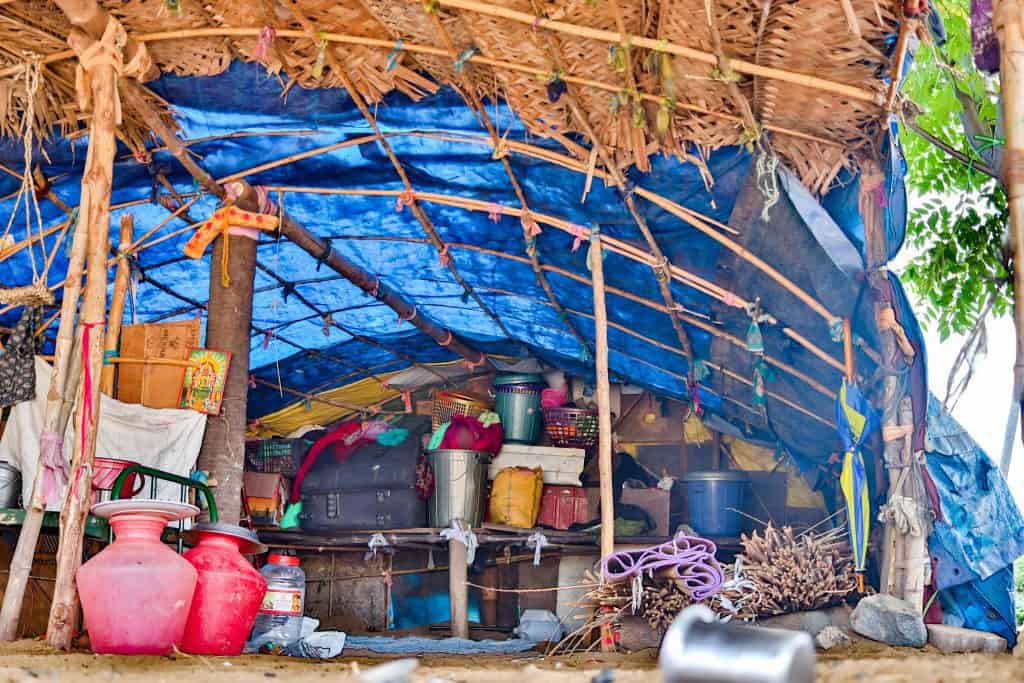
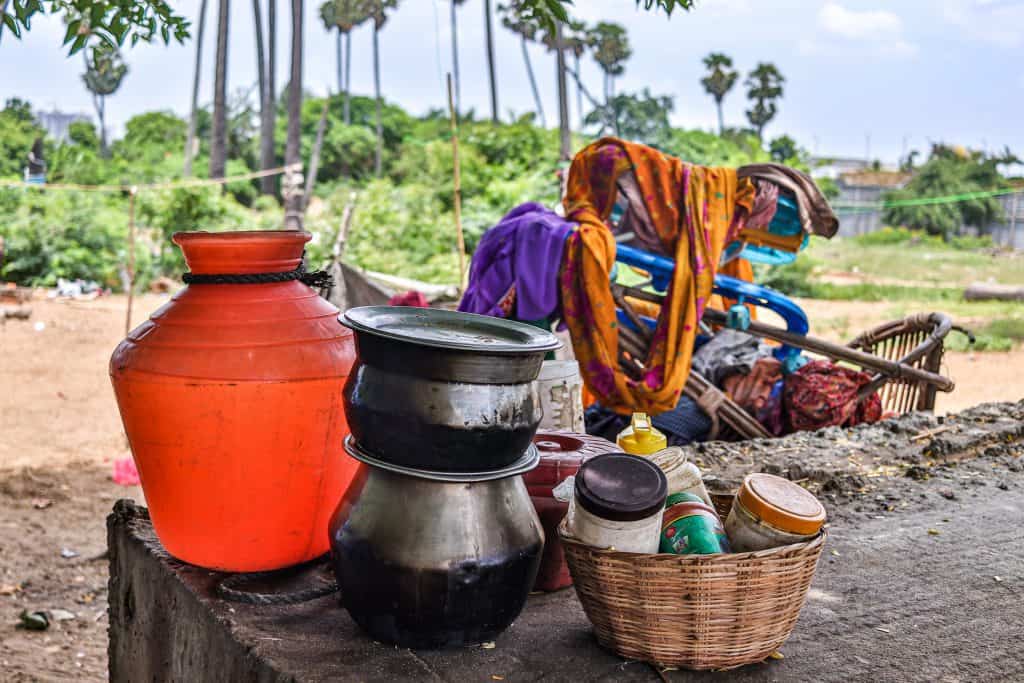
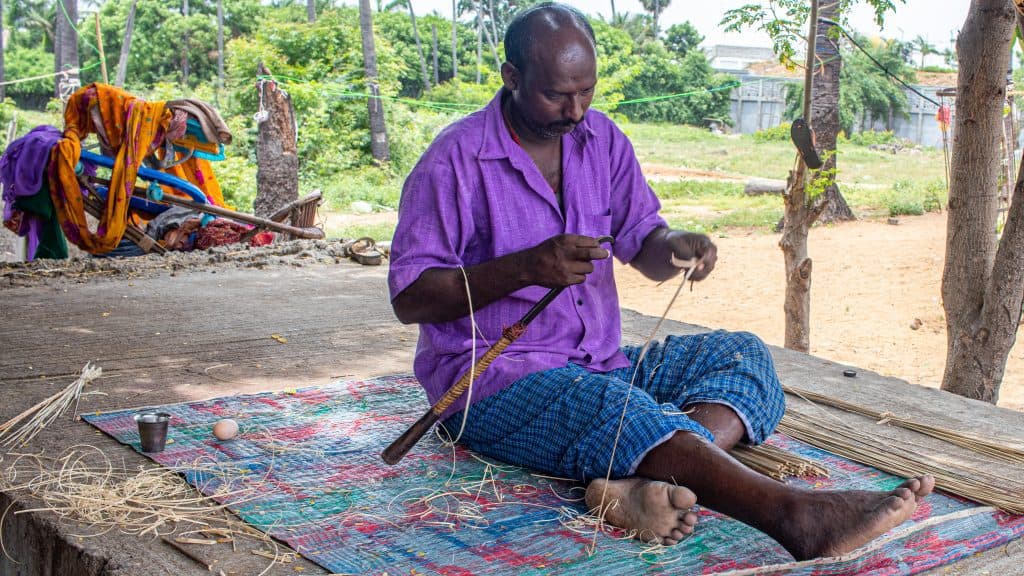
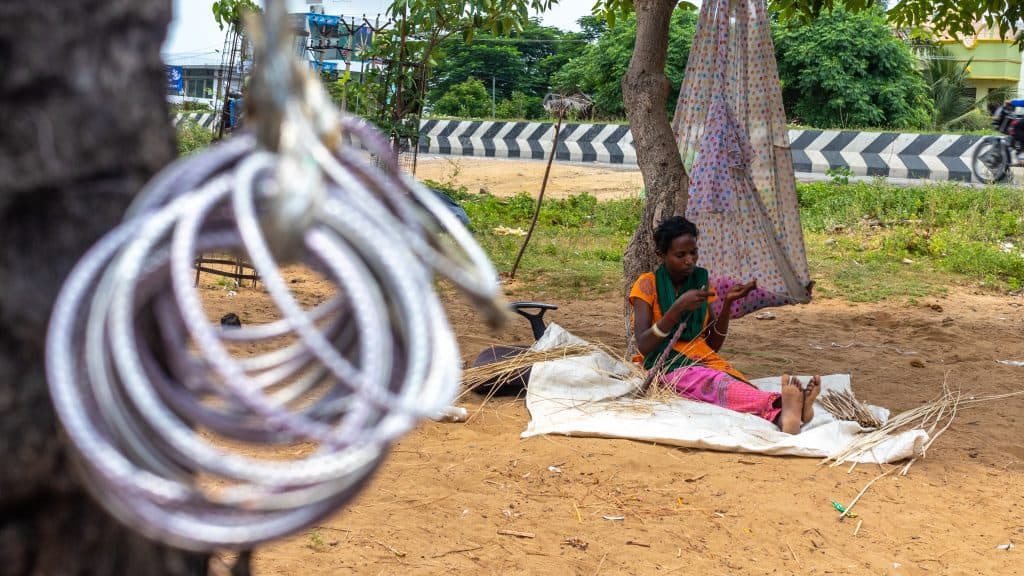
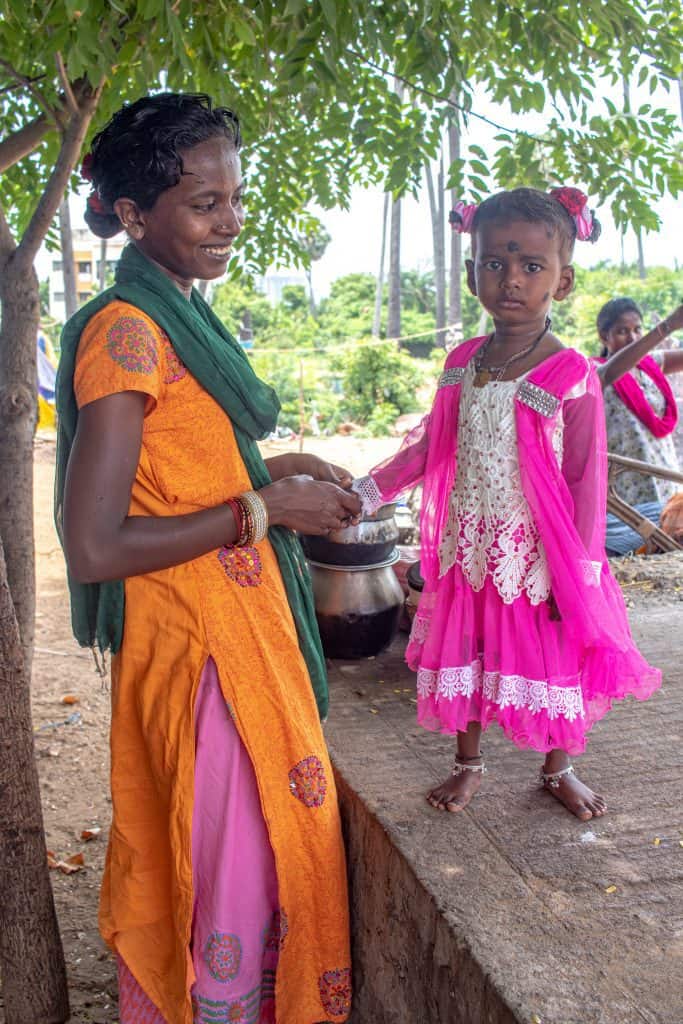
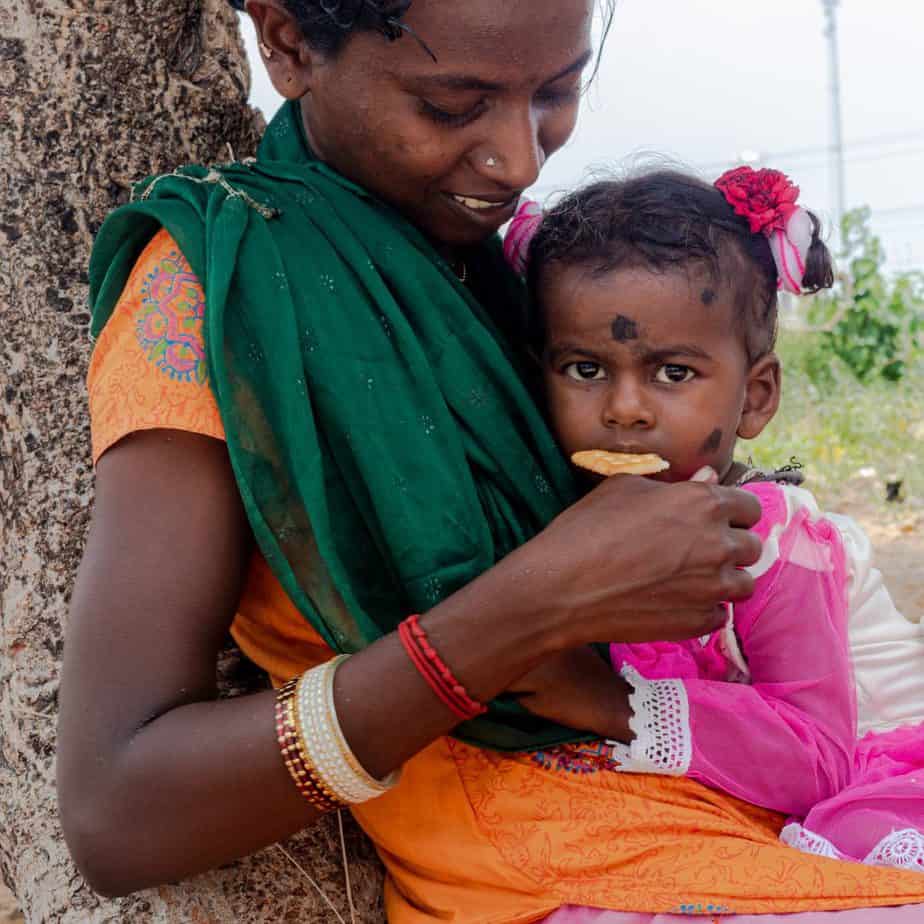
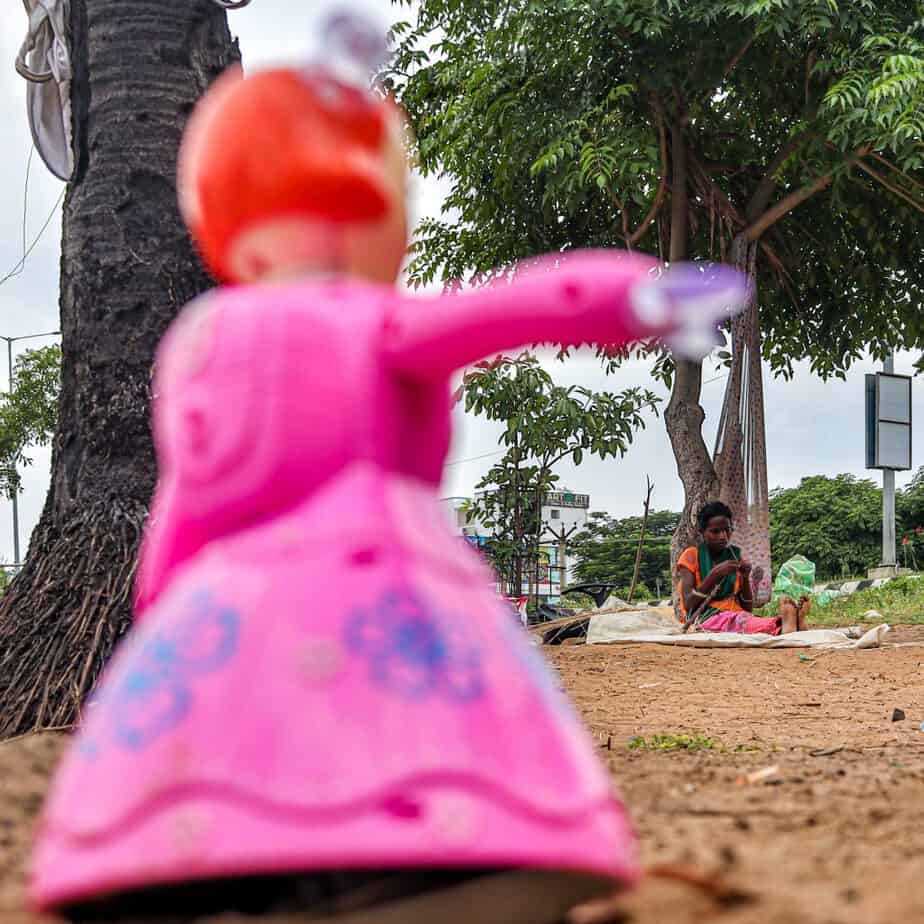
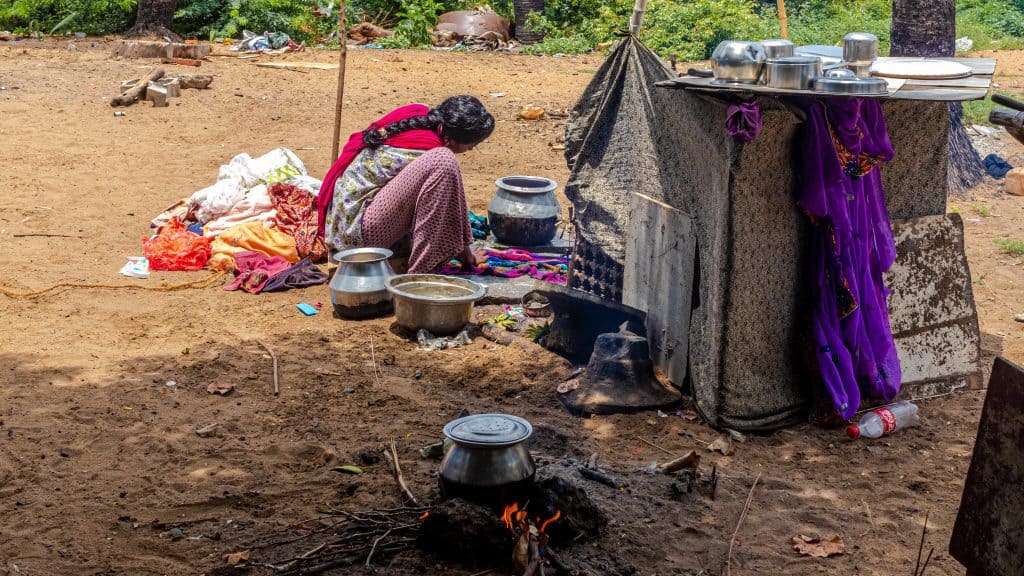
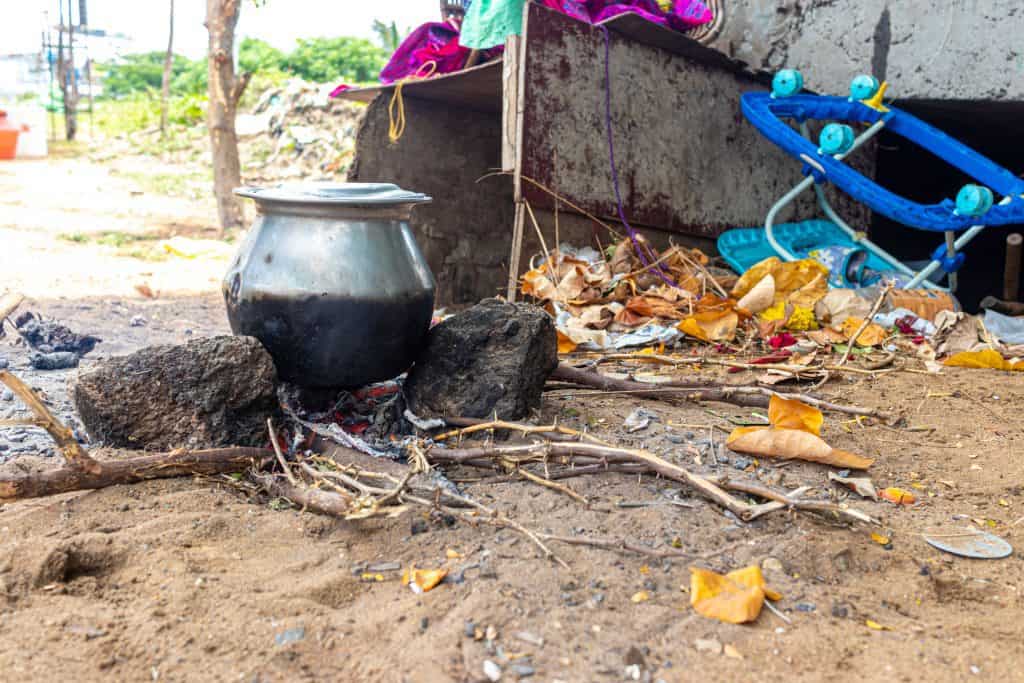
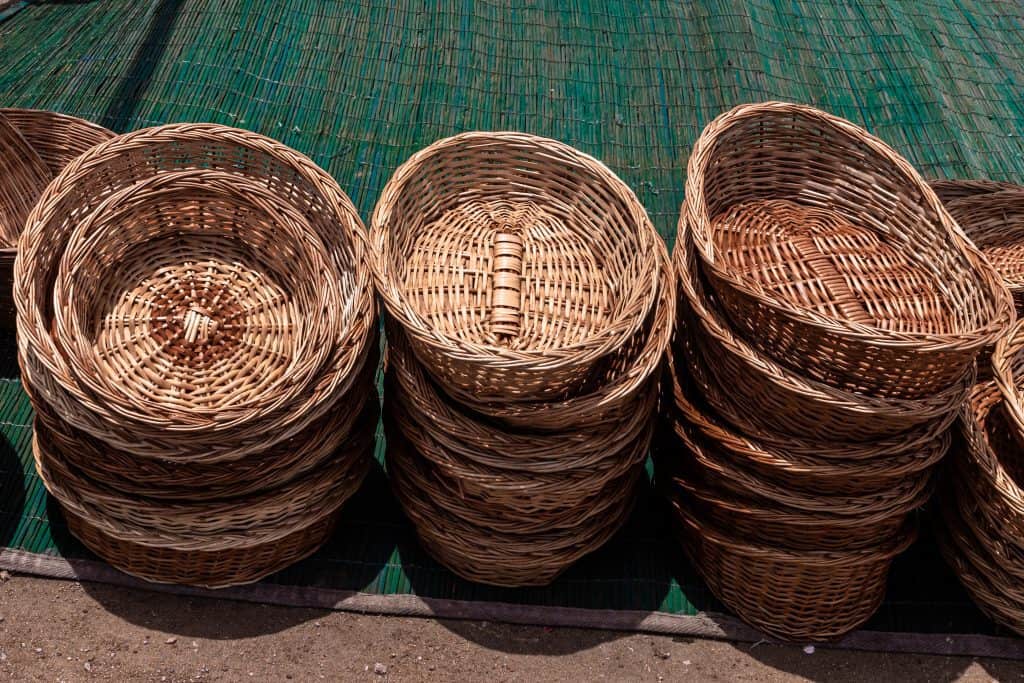
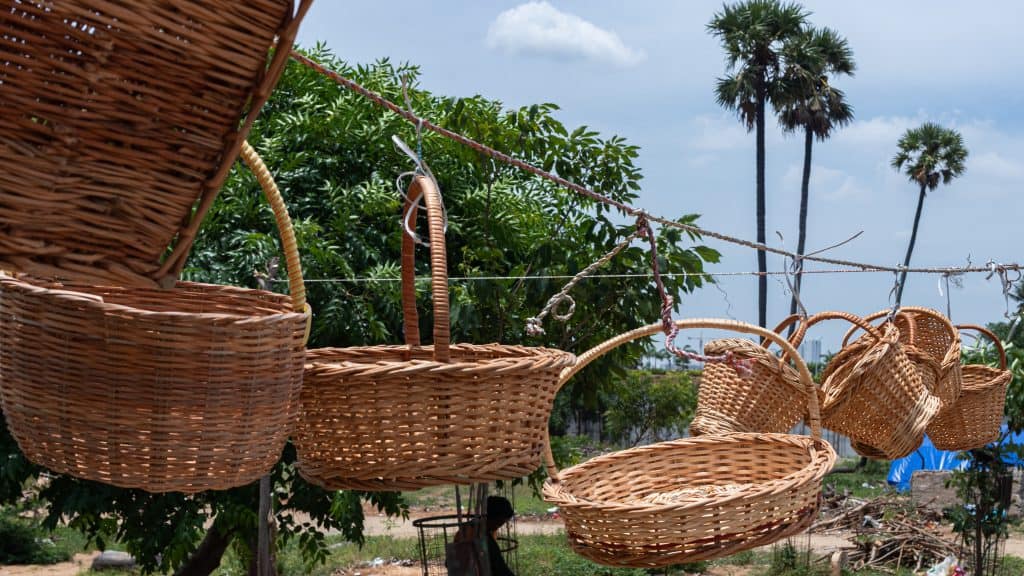
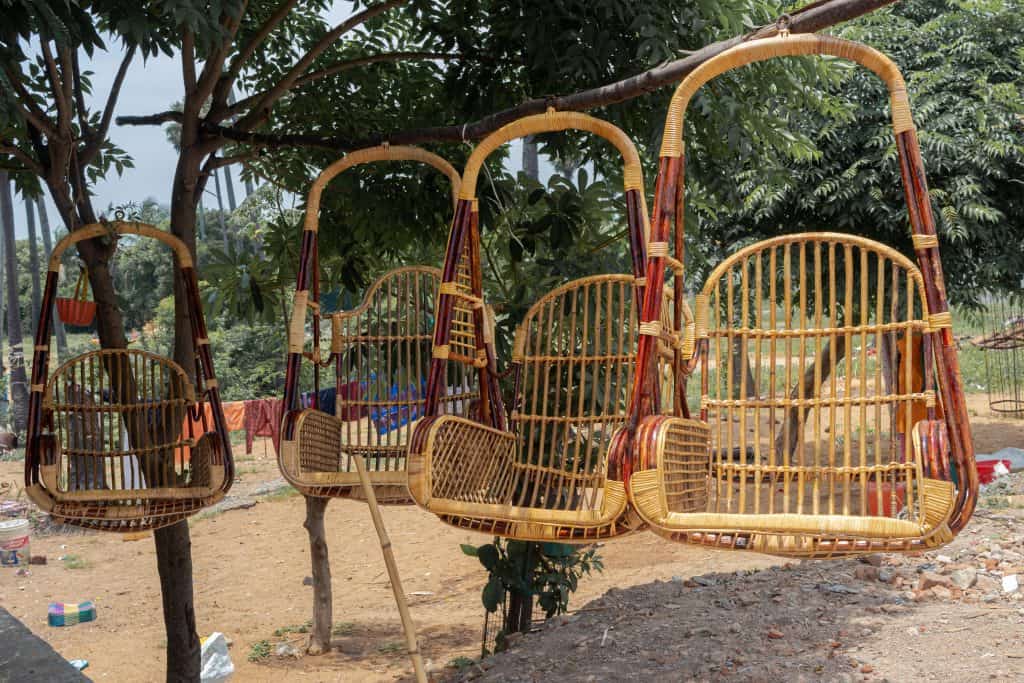
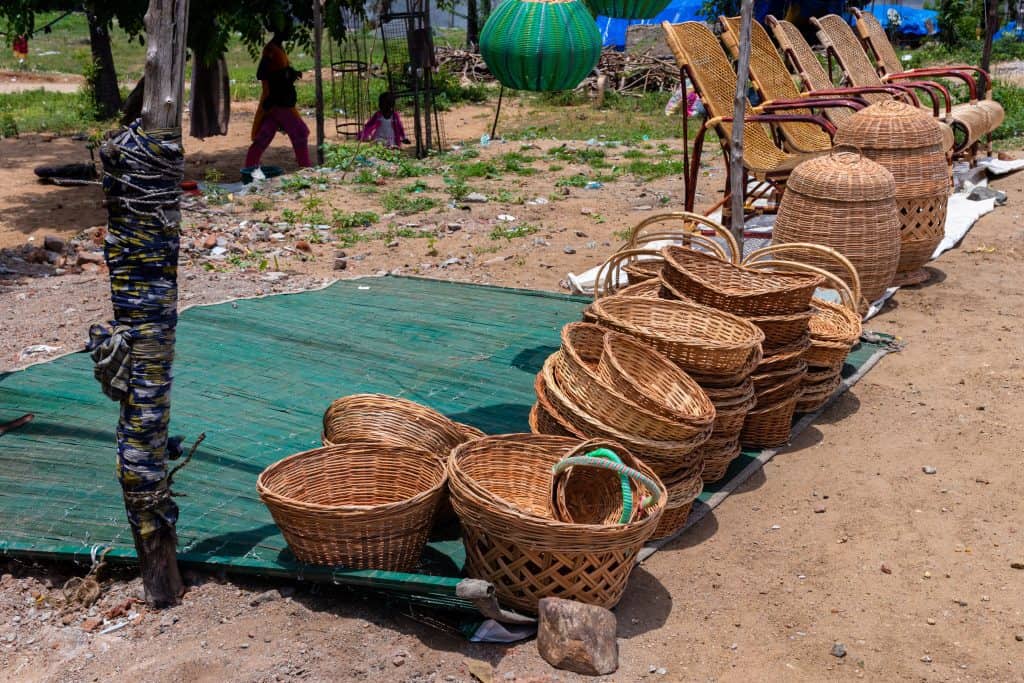
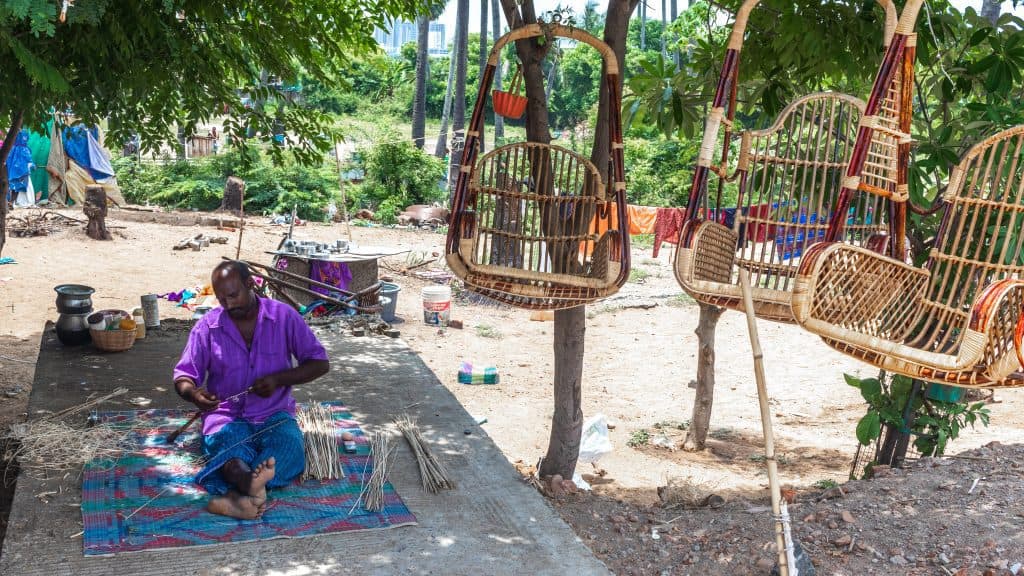
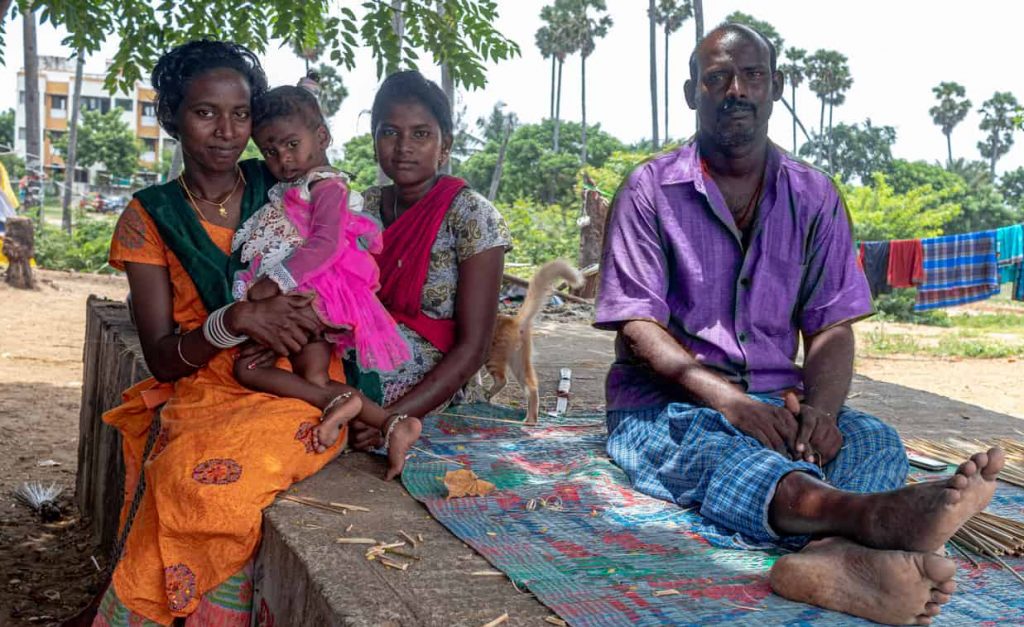
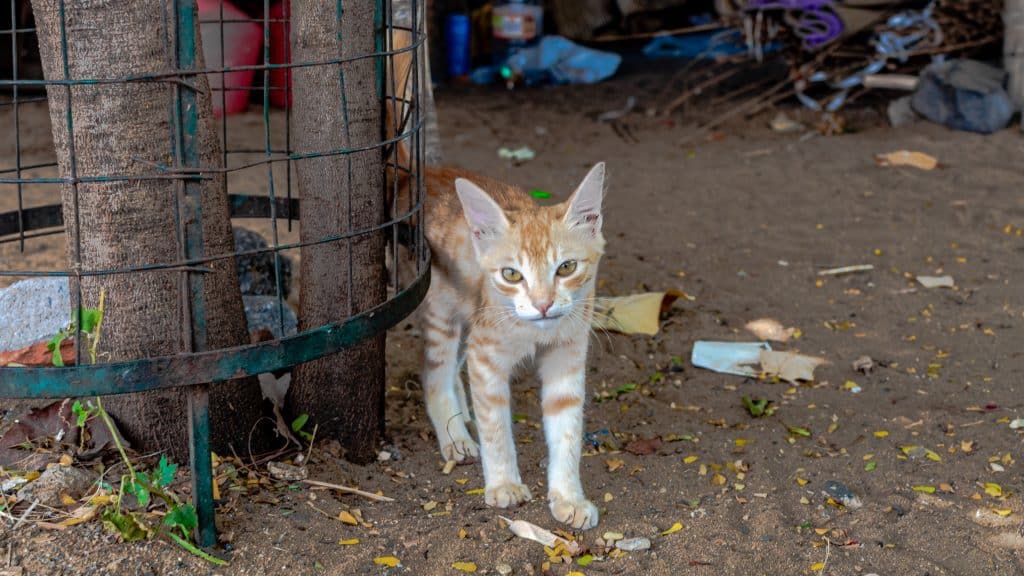
Is there a way ,we all can pool in and help this family?
Online stores should buy and sell their products (instead of going for China mall)